Holodomor in modern politics
The Holodomor (Ukrainian: Голодомор, literal translation Death by hunger) was a famine in the Ukrainian SSR and adjacent Cossack territories between 1932 and 1933 that caused the deaths of millions of Ukrainians due to starvation.[1][2] Opinions and beliefs about the Holodomor vary widely among nations: the event is considered a genocide by Ukraine[3] and fifteen other nations,[4] a crime against humanity by the European Parliament,[5] and part of the wider Soviet famine by the Russian Federation.[6]
| Part of a series on the |
| Holodomor |
|---|
| Historical background |
| Soviet government |
|
Institutions
Policies |
| Responsible parties |
|
| Investigation and comprehension |
Background
The Holodomor famine has experienced controversy in its classification as genocidal due in part to the objection of prominent Holocaust experts who took issue with the politicization of the word "genocide," a term originated by Raphael Lemkin. Lemkin was a featured speaker at the manifestation of Ukrainian-Americans in September 1953 to mark the twentieth anniversary of the Ukrainian Famine,[7] describing the 1932–33 famine as one aspect of a genocide in Ukraine perpetrated by the Soviet authorities between 1926 and 1946.[8]
At the international conference of the Ukrainian Holodomor, which was held in October 2003 at the Institute of Social and Religious History of Vicenza, 28 conference participants that included well-respected historians like James Mace, Hubert Laszkiewicz, Andrea Graziosi, Yuriy Shapoval, Gerhard Simon, Orest Subtelny, and Mauro Martini – endorsed a resolution addressed to the Italian government and the European Parliament with a request to recognize the Holodomor as an act of genocide against the Ukrainian people.[9][10]
Governments and parliaments of several of other countries have also officially recognized the Holodomor as an act of genocide.[11][12][13][14][15]
List
The following international organizations have recognized the Holodomor:[lower-alpha 1]
- Baltic Assembly[lower-alpha 2]
- European Parliament[lower-alpha 3]
- General Assembly of the United Nations[lower-alpha 4]
- Parliamentary Assembly of the Council of Europe[lower-alpha 5]
- Organization for Security and Cooperation in Europe[16][17]
The following countries have recognized the Holodomor:[lower-alpha 6][lower-alpha 7][20][21][22]
 Albania[lower-alpha 8]
Albania[lower-alpha 8] Argentina[24][25][26]
Argentina[24][25][26].svg.png.webp) Australia[27][28][lower-alpha 8]
Australia[27][28][lower-alpha 8] Austria[lower-alpha 8]
Austria[lower-alpha 8] Azerbaijan[lower-alpha 8]
Azerbaijan[lower-alpha 8].svg.png.webp) Belgium
Belgium Bulgaria
Bulgaria.svg.png.webp) Canada[29][30]
Canada[29][30] Chile
Chile Colombia[31][32]
Colombia[31][32] Czech Republic[33]
Czech Republic[33] Croatia
Croatia Denmark
Denmark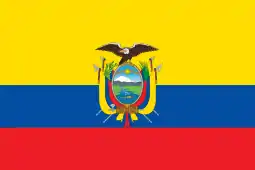 Ecuador[34][35]
Ecuador[34][35] Estonia
Estonia Finland
Finland France
France Georgia
Georgia Hungary
Hungary Iceland
Iceland Ireland
Ireland Israel
Israel Latvia
Latvia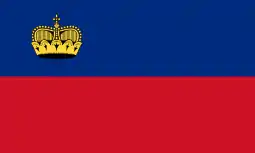 Liechtenstein
Liechtenstein Lithuania
Lithuania Luxembourg
Luxembourg Mexico
Mexico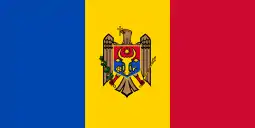 Moldova
Moldova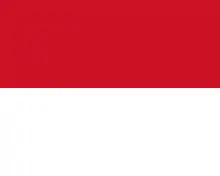 Monaco
Monaco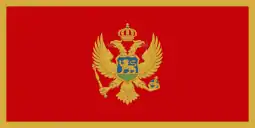 Montenegro
Montenegro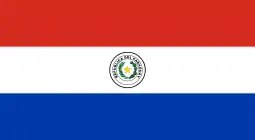 Paraguay
Paraguay Peru
Peru Poland[36][37]
Poland[36][37] Portugal
Portugal Slovakia[38][39]
Slovakia[38][39] Spain
Spain Ukraine
Ukraine United States[40][41] and twenty-two individual states[42][43][44][lower-alpha 9]
United States[40][41] and twenty-two individual states[42][43][44][lower-alpha 9]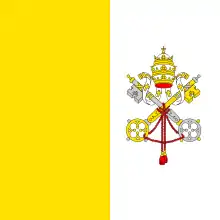 Vatican City[45]
Vatican City[45]
National recognition
Ukraine
On May 15, 2003, the Ukrainian parliament of Ukraine also passed a resolution declaring the famine of 1932 and 1933 to be an act of genocide, deliberately organized by the Soviet government against the Ukrainian nation.[46]
In 2006, the Security Service of Ukraine declassified more than 5,000 pages of Holodomor archives which suggest that the Soviet regime gave Ukraine less humanitarian aid than other famine-struck regions.[47][48]
On November 28, 2006, the parliament passed a resolution recognizing the Holodomor as an act of genocide against the "Ukrainian people" and criminalizing both Holodomor denial and Holocaust denial. Supporting the bill were BYuT (118 deputies), NSNU (79), Socialists (30), 4 independent deputies, and the Party of Regions (2). Opposing the bill were KPU. 200 deputies did not cast a vote. In all, 233 deputies supported the bill, which was more than the minimum of 226 votes required to pass it into law.[49][50][51]
In 2007, President Viktor Yushchenko declared he wanted "a new law criminalising Holodomor denial", including the designation of the Holodomor as genocide or not, but such a law has never been adopted.[52] Communist Party head Petro Symonenko accused Yushchenko of "using the famine to stir up hatred" and stated he "does not believe there was any deliberate starvation at all".[53] Few in Ukraine share Symonenko's interpretation of history and the number of Ukrainians who deny the famine or view it as caused by natural reasons is steadily falling.[54]
On 12 January 2010, the court of appeals in Kyiv opened hearings into the "fact of genocide-famine Holodomor in Ukraine in 1932–33". In May 2009, the Security Service of Ukraine started a criminal case "in relation to the genocide in Ukraine in 1932–33".[55] In a ruling of January 13, 2010, Kyiv's Court of Appeal recognized the leaders of the totalitarian Bolshevik regime as those guilty of 'genocide against the Ukrainian national group in 1932-33 through the artificial creation of living conditions intended for its partial physical destruction.'"[56] The court dropped criminal proceedings against the leaders: Stalin, Vyacheslav Molotov, Lazar Kaganovich, Stanislav Kosior, Pavel Postyshev, Vlas Chubar and others, who all had died years before. This decision became effective on 21 January 2010.[57]
Russian Federation
The Russian Federation officially says that the Holodomor is not an ethnic genocide.
The lower house of parliament passed a resolution in 2008 stating that the Holodomor should not be considered genocide:[58]
There is no historical proof that the famine was organized along ethnic lines. Its victims were millions of citizens of the Soviet Union, representing different peoples and nationalities living largely in agricultural areas of the country.
The Russian Federation condemned the Soviet regime's "disregard for the lives of people in the attainment of economic and political goals", along with "any attempts to revive totalitarian regimes that disregard the rights and lives of citizens in former Soviet states" yet stated that "there is no historic evidence that the famine was organized on ethnic grounds." [59]
Russian politician Mikhail Kamynin has claimed that Russia is against the politicisation of the Holodomor, and this question is for historians, not politicians.[60] Simultaneously the vice-speaker of the Russian State Duma, Lyubov Sliska, when asked in Kyiv when Russia would apologize for its part in repressions and famines in Ukraine, replied, "why always insist that Russia apologize for everything? The people whose policies brought suffering not only to Ukraine, but to Russia, Belarus, peoples of the Caucasus, and Crimean Tatars, remain only in history textbooks, secret documents and minutes of meetings."[60]
Ukrainian mass media censured Evgeny Guzeev, the Consul-General of the Russian Federation in Lviv, who stated that "the leaders of the period were sensible people, and it is impossible to imagine that this was planned."[61]
Kyiv Post believes that Russia contests the recognition of the famine as a genocide is because "as the Soviet Union's legal successor, Russia is also concerned about the possibility of legal action or having to pay reparations."[62]
On November 17, 2007 members from Aleksandr Dugin's Russian nationalist group the Eurasian Youth Union broke into the Ukrainian cultural center in Moscow and smashed an exhibition on the famine.[63]
According to a Moscow Times article: "The Kremlin argues that genocide is the killing of a population based on their ethnicity, whereas Stalin's regime annihilated all kinds of people indiscriminately, regardless of their ethnicity. But if the Kremlin really believed in this argument, it would officially acknowledge that Stalin's actions constituted mass genocide against all the people of the Soviet Union."[64]
United States
The United States government authorized the building of the Holodomor Memorial to Victims of the Ukrainian Famine-Genocide of 1932–1933 in Washington D.C. in 2006. [lower-alpha 10]
The United States Senate also adopted a non-binding resolution on 3 October 2018 recognising the Holodomor as genocide. The resolution reads that the Senate "recognizes the findings of the Commission on the Ukraine Famine as submitted to Congress on April 22, 1988, including that...'Stalin and those around him committed genocide against the Ukrainians in 1932–1933'". As of January 2021, The United States Senate,[65][66][67] House of Representatives,[68][69][70] and multiple state governments[71][72][73] have recogized the famine as man-made and as an act of genocide.
The conference on "Recognition and Denial of Genocide and Mass Killing in the 20th Century" held at City University of New York on 13 November 1987 concluded that millions died in Soviet Ukraine during a famine in 1932–33 and that the famine was both man-made and widely known. The United States Government Commission investigating the famine concluded this was part of the central government's attack on Ukrainian nationality and culture. The United States received reports about the famine from diplomatic contacts in Europe. The conference concluded that political considerations regarding the establishment of diplomatic relations with the Soviet Union played a role in not publicly sharing the information. The conference also found that leading American journalists working in the Soviet Union knowingly distorted or omitted information about the famine.[74]
According to the US Government Commission on the Ukrainian Famine,[11] the seizure of the 1932 crop by the Soviet authorities was the main reason for the famine. The US commission stated that "while famine took place during the 1932–1933 agricultural year in the Volga Basin and the North Caucasus Territory as a whole, the invasiveness of Stalin's interventions of both the Fall of 1932 and January 1933 in Ukraine are paralleled only in the ethnically Ukrainian Kuban region of the North Caucasus".
.jpg.webp)
Holodomor Genocide Memorial
In 2006, the United States govenment enacted Public Law 109-340 authorizing the establishment of a memorial to victims of the "famine-genocide". The law was passed by the 109th Congress and singed into law by President George W. Bush and states, "the Government of Ukraine is authorized to establish a memorial on Federal land in the District of Columbia to honor the victims of the Ukrainian famine-genocide of 1932–1933."[lower-alpha 10] The Holodomor Genocide Memorial was opened in Washington, D.C., on November 7, 2015.[lower-alpha 11]
Officially named The Holodomor Memorial to Victims of the Ukrainian Famine-Genocide of 1932-1933, the memorial is a joint project between the United States and the Ukrainian government. The memorial is operated by the National Park Service. The inscription on the memorial reads, "Famine-Genocide in Ukraine. In memory of the millions of innocent victims of a man-made famine in Ukraine engineered and implemented by Stalin’s totalitarian regime."[lower-alpha 12]
International recognition
United Nations
On 10 November 2003, the Ukrainian ambassador to the United Nations presented a Joint declaration at the United Nations in connection with 70th anniversary of the Great Famine in Ukraine 1932–1933 to the UNGA. It was signed by 25 member delegations, and by the end of the month the list of signatories grew to 36, plus the European Union.[85][86][87] The preamble:[88]
In the former Soviet Union millions of men, women and children fell victims to the cruel actions and policies of the totalitarian regime. The Great Famine of 1932–1933 in Ukraine (Holodomor), took from 7 million to 10 million innocent lives and became a national tragedy for the Ukrainian people. In this regard, we note activities in observance of the seventieth anniversary of this Famine, in particular organized by the Government of Ukraine. Honouring the seventieth anniversary of the Ukrainian tragedy, we also commemorate the memory of millions of Russians, Kazakhs and representatives of other nationalities who died of starvation in the Volga River region, Northern Caucasus, Kazakhstan and in other parts of the former Soviet Union, as a result of civil war and forced collectivisation, leaving deep scars in the consciousness of future generations.
Valeriy Kuchinsky, the chief Ukrainian representative, claimed that the declaration that the Holodomor was a result of the politics of the totalitarian Soviet regime was a compromise, between the position of the Ukrainian government to recognize the Holodomor as genocide, and the positions of the Russian, British, and American governments to not.[61]
Subsequent declarations on significant anniversary dates have recalled the 2003 statement as well as the 2007 UNESCO resolution.
The United Nations General Assembly has not recognized the Holodomor as a genocide.[89]
Declarations accepted by the United Nations General Assembly
- 2003, 10 November: Joint statement on the seventieth anniversary of the Holodomor of 1932–1933 in Ukraine (signed by 36 UNGA members)[86][87][lower-alpha 13]
- 2008, 16 December: Declaration on the seventy-fifth anniversary of the Holodomor of 1932–1933 in Ukraine (32 members)[90][lower-alpha 14]
- 2013, 12 December: Joint statement on the eightieth anniversary of the Holodomor of 1932–1933 in Ukraine (32 members)[91][lower-alpha 15]
- 2018, 11 December: Declaration on the eighty-fifth anniversary of the Holodomor of 1932–1933 in Ukraine (38 members)[23][92][lower-alpha 16]
UNESCO
At the 2007 General Conference of the UN Educational, Scientific and Cultural Organization, 193 member delegations unanimously passed a resolution "On Remembrance of Victims of the Great Famine (Holodomor) in Ukraine". The November 1 statement recalled the 2003 UN Joint Statement, expressed sympathy, welcomed and encouraged members to participate in the upcoming 75th-anniversary commemorations, and requested the Director-General to promote awareness of the Holodomor.[93][94][95]
International Commission of Inquiry Into the 1932–33 Famine in Ukraine
The final report of the Ukrainian World Congress's International Commission of Inquiry Into the 1932–33 Famine in Ukraine, delivered to the United Nations Under-Secretary for Human Rights in Geneva on May 9, 1990, concluded that the famine in Ukraine was, in fact, genocide. At same time the commission majority (5 of 6) deems it plausible that the constituent elements of genocide were in existence at the time of the famine. Commission is unable to affirm the existence of a preconceived plan to organize a famine in Ukraine, in order to ensure the success of Moscow policies.[96][97]
Baltic Assembly
In 2007, the Baltic Assembly issued a statement, On Commemorating the Victims of Genocide and Political Repressions Committed in Ukraine in 1932 and 1933, "condemning the genocide and political repressions committed in 1932 and 1933 as a result of which the Ukrainian people experienced mental and physical sufferings".[98]
Organization for Security and Co-operation in Europe
On 3 July 2008 the Parliamentary Assembly of Organization for Security and Co-operation in Europe passed the resolution condemning the Ukrainian famine acknowledging the direct responsibility of the Soviet action. The resolution called upon all parliaments to take measures on recognition of the fact of Holodomor in Ukraine but fell short of recognizing it as an act of genocide as requested by the document prepared by the Ukrainian delegation.[99][100]
European Parliament
On 23 October 2008, the European Parliament passed a resolution titled, European Parliament resolution of 23 October 2008 on the commemoration of the Holodomor, the Ukraine artificial famine (1932-1933); the resolution includes the following statements:[5][101]
- "Whereas the Holodomor famine of 1932-1933, which caused the deaths of millions of Ukrainians, was cynically and cruelly planned by Stalin's regime in order to force through the Soviet Union's policy of collectivisation of agriculture against the will of the rural population in Ukraine" ...
- Makes the following declaration to the people of Ukraine and in particular to the remaining survivors of the Holodomor and the families and relatives of the victims:
- "Recognises the Holodomor (the artificial famine of 1932-1933 in Ukraine) as an appalling crime against the Ukrainian people, and against humanity;
- Strongly condemns these acts, directed against the Ukrainian peasantry, and marked by mass annihilation and violations of human rights and freedoms;
- Expresses its sympathy with the Ukrainian people, who suffered in this tragedy, and pays its respects to those who died as a consequence of the artificial famine of 1932-1933;
- Calls on the countries which emerged following the break-up of the Soviet Union to open up their archives on the Holodomor in Ukraine of 1932-1933 to comprehensive scrutiny so that all the causes and consequences can be revealed and fully investigated;"
Council of Europe
In 2010, The Council of Europe Parliamentary Assembly approved Resolution 1723 (2010), titled Commemorating the victims of the Great Famine (Holodomor) in the former USSR, recognising and condemning the Holodomor as a "crime against humanity"[lower-alpha 17]. The resolution reads (in part),
Section 4: Millions of innocent people in Belarus, Kazakhstan, Moldova, Russia and Ukraine, which were parts of the Soviet Union, lost their lives as a result of mass starvation caused by the cruel and deliberate actions and policies of the Soviet regime.
Section 11: It strongly condemns the cruel policies pursued by the Stalinist regime, which resulted in the death of millions of innocent people, as a crime against humanity. It resolutely rejects any attempts to justify these deadly policies, by whatever purposes, and recalls that the right to life is non-derogable.
Resolution 1723 references Resolution 1481 (2006) on the need for international condemnation of the crimes committed by communist governments and recognising other groups that were impacted by the wider famine of 1932-33.[102]
Misidentification of graphical materials
Some images related to the Russian and Ukrainian famine of 1921 or Great Depression in the United States have been presented as Holodomor-related images.[103] According to American historian, Morgan E Williams: "Ninety-five percent of the photos that are represented as being of the Ukrainian famine are from Russia. That's a sore point with me. [The gaffes] are then used by people who say we exaggerate the extent of the famine. Or even worse, by people who deny [that the famine ever occurred]".[104]
The Holodomor Research and Education Consortium has among its resources a collection of 1920s famine photographs that were used "wittingly or unwittingly" to represent the Holodomor, out of concern that they "serve not only to reinforce misinformation but provide fodder for the contrived arguments of Holodomor deniers".[105]
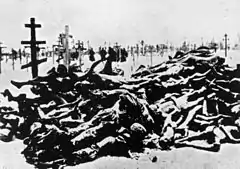 This image of the 1921 Soviet famine was taken in Volga Region near Samara by the Geneva based humanitarian group in 1921[106][107] has been misused to represent the Holodomor[108][109]
This image of the 1921 Soviet famine was taken in Volga Region near Samara by the Geneva based humanitarian group in 1921[106][107] has been misused to represent the Holodomor[108][109] The above image pictured in a display on the Holodomor in front of the St. Michael's cathedral
The above image pictured in a display on the Holodomor in front of the St. Michael's cathedral
See also
- Crimes against humanity under communist regimes
- Denial of the Holodomor
- Excess mortality in the Soviet Union under Joseph Stalin
- Holodomor genocide question
- International Commission of Inquiry Into the 1932–33 Famine in Ukraine
- Kazakh famine of 1932–33
- Mass killings under communist regimes
- Soviet famine of 1932–33
References
Notes
- See United Nations section for details and references.
- See Baltic Assembly section for text and reference for of the 2007 statement On Commemorating the Victims of Genocide and Political Repressions Committed in Ukraine in 1932 and 1933.
- See European Parliament section for text and references for European Parliament resolution of 23 October 2008 on the commemoration of the Holodomor, the Ukraine artificial famine.
- See the United Nations for a list of resolutions with references.
- See Council of Europe for details and references.
- For details on recognition, see National recognition.
- For a list of nations which were co-author sponsors of the UN Declaration on 85th anniversary of Holodomor, see [18][19]
- Nation has signed the United Nations Declaration on the Eighty-Fifth Anniversary of the Holodomor of 1932-1933 in Ukraine.[23]
- The following US states have passes resolutions regarding the Holodomor: Alabama, Connecticut, Illinois, Kansas, Massachusetts, Michigan, Minnesota, Missouri, New Jersey, New York, North Carolina, Ohio, Oregon, Pennsylvania, Rhode Island, Texas, Utah, Virginia, Washington, and Wisconsin.
- See 120 STAT. 1864 PUBLIC LAW 109–340—OCT. 13, 2006.[75][76][77][78]
- For information about the design and opening of the memorial, see [79][80][81]
- For more information about the design and operation of the memorial, see [82][83][84]
- Nations signing the Joint Statement on the Seventieth Anniversary of the Great Famine of 1932-1933 in Ukraine (Holodomor): Azerbaijan, Bangladesh, Belarus, Benin, Bosnia and Herzegovina, Canada, Egypt, Georgia, Guatemala, Islamic Republic of Iran, Jamaica, Kazakhstan, Kuwait, Kyrgyzstan, Mongolia, Nauru, Nepal, Pakistan, Peru, Qatar, Saudi Arabia, South Africa, Tajikistan, the former Yugoslav Republic of Macedonia, the Republic of Korea, the Republic of Moldova, the Russian Federation, the Sudan, the Syrian Arab Republic, the United Arab Emirates, the United States of America, Timor-Leste, Turkmenistan, Ukraine, and Uzbekistan.
- Nations signing the Declaration on the Seventy-Fifth Anniversary of the Holodomor of 1932-1933 in Ukraine: Albania, Australia, Austria, Azerbaijan, Belgium, Canada, Croatia, the Czech Republic, Denmark, Estonia, Finland, France, Georgia, Germany, Hungary, Iceland, Ireland, Israel, Latvia, Liechtenstein, Lithuania, Luxemburg, Malta, Monaco, Norway, Poland, Saint Lucia, Spain, Sweden, Ukraine, the United Kingdom of Great Britain and Northern Ireland, and the United States of America.
- Nations signing the Joint Statement on the Eightieth Anniversary of the Holodomor of 1932-1933 in Ukraine: Albania, Australia, Austria, Azerbaijan, Belgium, Canada, Croatia, the Czech Republic, Denmark, Estonia, Finland, France, Georgia, Germany, Hungary, Iceland, Ireland, Israel, Latvia, Liechtenstein, Lithuania, Luxembourg, Malta, Moldova, Monaco, Norway, Poland, Spain, Sweden, Ukraine, the United Kingdom of Great Britain and Northern Ireland, and the United States of America.
- Nations signing the Declaration on the Eighty-Fifth Anniversary of the Holodomor of 1932-1933 in Ukraine: Albania, Australia, Austria, Azerbaijan, Belgium, Bulgaria, Canada, Chile, Croatia, the Czech Republic, Denmark, Estonia, Finland, France, Georgia, Germany, Hungary, Iceland, Ireland, Israel, Latvia, Liechtenstein, Lithuania, Luxembourg, Moldova, Monaco, Montenegro, the Netherlands, Norway, Poland, Portugal, Slovenia, Spain, Sweden, Switzerland, Ukraine, the United Kingdom, and the United States.[23]
- See Section 11, Resolution 1723, Council of Europe.[102]
Citations
- Jones, Adam (2016). Genocide: A Comprehensive Introduction (3rd ed.). London: Routledge. p. 90.
Holodomor – the Ukrainian “famine-extermination” of 1932–1933 at the hands of Stalin’s Soviet regime (Chapter 5); "a compound word combining the root holod ‘hunger’ with the verbal root mor 'extinguish', 'exterminate' (Lubomyr Hajda, Harvard University).
- - "The famine of 1932–33", Encyclopædia Britannica. Quote: "The Great Famine (Holodomor) of 1932–33—a man-made demographic catastrophe unprecedented in peacetime. Of the estimated six to eight million people who died in the Soviet Union, about four to five million were Ukrainians... Its deliberate nature is underscored by the fact that no physical basis for famine existed in Ukraine... Soviet authorities set requisition quotas for Ukraine at an impossibly high level. Brigades of special agents were dispatched to Ukraine to assist in procurement, and homes were routinely searched and foodstuffs confiscated... The rural population was left with insufficient food to feed itself."
- "Holodomor, Genocide & Russia: the great Ukrainian challengeEuromaidan Press". Euromaidanpress.com. Retrieved 6 February 2021.
- Radio Free Europe / Radio Liberty (7 November 2019). "Holodomor: How Millions Of Ukrainians Died of Starvation During Stalin-Era Mass Famine". YouTube. Retrieved 6 February 2021.
- "Parliament recognises Ukrainian famine of 1930s as crime against humanity". European Parliament. 23 October 2008. Archived from the original on 9 July 2011. Retrieved 31 January 2021.
- "Russia's denying Holodomor as genocide same as committing this crime - Ukrainian Foreign Ministry". Ukrimform. Retrieved 6 February 2021.
- Bilinsky, Yaroslav (1999). "Was the Ukrainian Famine of 1932–1933 Genocide?". Journal of Genocide Research. 1 (2): 147–156. doi:10.1080/14623529908413948. Archived from the original (PDF) on 22 October 2019. Retrieved 18 January 2021.
- Lemkin, Rafael (8 April 2009). "Lemkin on Genocide of Nations" (PDF). Journal of International Criminal Justice. 7 (1): 123–130. doi:10.1093/jicj/mqp002.
- "Convegno internazionale di studi: La grande carestia, la fame e la morte della terra nell'Ucraina del 1932–33" [International conference: A great famine, starvation and death in the land of Ukraine in 1932–33] (PDF) (in Italian). Italian Association of Ukrainian Studies (AISU). October 2003. Archived from the original (PDF) on 27 February 2005.
- James Mace (21 October 2003). "The Great Famine-Genocide in Soviet Ukraine (Holodomor): Intellectual Europe on Ukrainian Genocide". The Day Weekly Digest. artukraine.com. Archived from the original on 4 March 2016. Retrieved 26 February 2016.
- "U. S. Commission on the Ukraine Famine, Report to Congress: Findings". U.S. Commission on the Ukraine Famine. faminegenocide.com. 19 April 1988. Archived from the original on 4 June 2011. Retrieved 26 February 2016.
- "US House of Representatives Authorizes Construction of Ukrainian Genocide Monument in Washington, D.C." UCCA. 16 November 2005. Archived from the original on 25 November 2005.
- "Statement by Pope John Paul II on the 70th anniversary of the Famine". skrobach.com. 2007. Archived from the original on 30 June 2007.
- HR356 "Expressing the sense of the House of Representatives regarding the man-made famine that occurred in Ukraine in 1932–1933" Archived 2008-06-15 at the Wayback Machine, United States House of Representatives, Washington, D.C., October 21, 2003
- Countries whose governments recognize Holodomor as Genocide are Argentina , Australia , Azerbaijan , Belgium , Canada , Estonia , Georgia , Hungary , Italy , Latvia , Lithuania , Moldova , Poland Archived 2008-10-28 at the Wayback Machine, United States and the Vatican
- "Joint Statement of the OSCE participating States: Andorra, Azerbaijan, Bosnia and Herzegovina, Bulgaria, Canada, the Czech Republic, Estonia, France, Georgia, Germany, Holy See, Hungary, Ireland, Latvia, Lithuania, the former Yugoslav Republic of Macedonia, Moldova, Norway, Poland, Slovakia, Spain, Sweden, Ukraine, the United Kingdom, the United States of America "On 75th Anniversary of the Holodomor of 1932 and 1933 in Ukraine"". Madrid: Ministry for Foreign Affairs of Ukraine. 30 November 2007. Archived from the original (DOC) on 19 February 2009. Retrieved 9 December 2007.
- "25 OSCE-Participant Countries Adopt Joint Statement "On 75th Anniversary of Holodomor in Ukraine 1932–1933"". Ukrinform. 4 December 2007. Retrieved 9 December 2007.
- "Thirty-eight states co-author UN Declaration on 85th anniversary of Holodomor". UNIAN. Retrieved 1 February 2021.
- "Declaration on the Eighty-Fifth Anniversary of the Holodomor of 1932-1933 in Ukraine". Permanant Mission of Ukraine to the United Nations. 7 December 2018. Retrieved 1 February 2021.
- Mendel, Iuliia (24 November 2019). "85 Years Later, Ukraine Marks Famine That Killed Millions". The New York Times. Retrieved 2 February 2021.
Since 2006, when Ukraine adopted a law designating the famine a genocide, 18 countries and 21 American states have followed suit.
- UKR Mission to UN [@UKRinUN] (7 December 2018). "Ukraine initiated @UN the Declaration on the Eighty-Fifth Anniversary of the #Holodomor of 1932-1933 in #Ukraine. . . " (Tweet). Retrieved 6 February 2021 – via Twitter.
- "Ukraine initiated at the UN the Declaration on the Eighty-Fifth Anniversary of the Holodomor of 1932-1933 in Ukraine". Retrieved 6 February 2021.
- "Ukraine initiated at the UN the Declaration on the Eighty-Fifth Anniversary of the Holodomor of 1932-1933 in Ukraine". Permanant Mission of Ukraine to the United Nations. 7 December 2018. Retrieved 1 February 2021.
- "Resolução do Senado da Argentina (n.º1278/03)" [Resolution of the Senate of Argentina (No. 1278-03)]. 26 June 2003.
- "Senador Nacional Carlos Alberto Rossi" [National Senator Carlos Alberto Rossi]. Honorable Senate of the Nation. Archived from the original on 4 July 2004. Retrieved 13 February 2007.
- "Argentinean Parliament approved resolution to commemorate 1932 to 1933 Holodomor victims in Ukraine". Government Portal (Ukraine). 28 December 2007. Archived from the original on 1 July 2017.
- "Foreign Affairs: Ukrainian Famine (No. 680)" (PDF). Journals of the Senate. 114: 2652–2653. 30 October 2003. Archived from the original (PDF) on 29 December 2004.
- "Australian Senate condemns Famine-Genocide". The Ukrainian Weekly. LXXI (46). 16 November 2003. Retrieved 28 December 2015.
- "Journals of the Senate No.72, 2nd Session, 37th Parliament" (PDF). 19 June 2003: 994–995. Retrieved 28 December 2015. Cite journal requires
|journal=(help) - Canadian Senate adopts motion on Famine-Genocide, by Peter Stieda, The Ukrainian Weekly, June 29, 2003, No. 26, Vol LXXI, (accessed on June 26, 2007)
- "Colombia Recognizes Holodomor Famine In Ukraine In 1932-1933 As Genocide". Ukrainian News Service. 24 December 2007. Archived from the original on 26 December 2007.
- "Columbia declares Holodomor an act of genocide". Ukrainian Helsinki Human Rights Union. 25 December 2007. Archived from the original on 19 February 2009. Retrieved 26 March 2008.CS1 maint: unfit URL (link)
- "Parlament České republiky, Poslanecká Sněmovna – 535 Usnesení Poslanecké sněmovny z 23. schůze 30. listopadu 2007" [The Parliament of the Czech Republic, Chamber of Deputies – Resolution 535 of Chamber of Deputies from the 23rd meeting of 30 November 2007] (PDF). Parliament of the Czech Republic (in Czech). 30 November 2007. Retrieved 23 February 2016.
- "Aprueba resolución: Congreso se solidariza con pueblo Ucraniano" [Resolution passed: Congress is in solidarity with Ukrainian people]. National Congress of Ecuador (in Spanish). 30 October 2007. Archived from the original on 2 November 2007. Retrieved 31 October 2007.CS1 maint: unfit URL (link)
- "Eduacor Recognized Holodomor in Ukraine!". Mignews. Ukrainskie novosti. 31 October 2007. Archived from the original on 4 April 2008.
- Jurek, Marek (6 December 2006). "UCHWAŁA Sejmu Rzeczypospolitej Polskiej z dnia 6 grudnia 2006 r. w sprawie uczczenia ofiar Wielkiego Głodu na Ukrainie". Sejm Rzeczypospolitej Polskiej.
- "Sprawozdanie – Komisji Ustawodawczej oraz Komisji Spraw Zagranicznych – o projekcie uchwały w sprawie rocznicy Wielkiego Głodu na Ukrainie" [Report of the Legislative Committee and Foreign Affairs Committee – on the project resolution concerning the anniversary of the Great Famine in Ukraine] (PDF). Senate of the Republic of Poland (in Polish). 14 March 2006. Retrieved 24 July 2016.
- "NR SR: Prijali deklaráciu k hladomoru v bývalom Sovietskom zväze" [National Council: Adopted a declaration on the Holodomor in the former Soviet Union] (in Slovak). EpochMedia. 13 December 2007. Archived from the original on 19 February 2009. Retrieved 26 March 2008.
- "Slovak Parliament Recognizes Holodomor of 1932–1933 in Former USSR, Including in Ukraine, "Extermination Act". Ukrinform. 13 December 2007. Archived from the original on 7 August 2011. Retrieved 13 December 2007.
- "Holodomor 1932–1933. Reference, Government Reports, Laws". HOLODOMOR : The famine-genocide of Ukraine, 1932–1933. Connecticut Holodomor Committee. Retrieved 28 December 2015.
- "Resolution of the House of Representatives of the US (HRES 356 EH)" (PDF). U.S. Government Printing Office. 20 October 2003. Archived from the original (PDF) on 7 November 2012.
- Американський штат Вірджинія визнав Голодомор геноцидом. Українська правда (in Ukrainian). 8 November 2018. Retrieved 8 November 2018.
- Embassy of Ukraine in the USA (19 November 2018). "Північна Кароліна в особі Губернатора штату Роя Купера офіційно приєдналася до вшанування 85-х роковин Голодомору 1932-1933 років в Україні та визнала цю трагедію геноцидом. [media: North Carolina Proclamation of Holodomor Remembrance Day]". Facebook. Retrieved 1 February 2021.
- "Штат Коннектикут признал Голодомор геноцидом украинского народа". ZN.ua. 21 November 2018. Retrieved 21 November 2018.
- "International Recognition of the Holodomor". Holodomoreducation.org. 28 November 2006. Retrieved 24 July 2016.
- "Про Звернення до Українського народу учасників спеціального засідання Верховної Ради України 14 травня 2003 року щодо вшанування пам'яті жертв голодомору 1932–1933 років" [On the appeal to the Ukrainian people of the participants of the special session of the Verkhovna Rada of Ukraine on May 14, 2003 to commemorate the victims of the 1932–1933 famine]. Verkhovna Rada. 15 May 2003. Archived from the original on 9 December 2013.
- "Служба безпеки України". Ssu.kmu.gov.ua. Archived from the original on 10 April 2018. Retrieved 7 September 2012.
- "SBU documents show that Moscow singled out Ukraine in famine". 5 Kanal. 22 November 2006. Archived from the original on 27 September 2007. Retrieved 22 July 2012.
- Закон України: Голодомор 1932–1933 років в Україні – Закон від 28.11.2006 № 376-V [Law of Ukraine: Holodomor in Ukraine 1932–1933 – Law from 28.11.200t No 376-V]. Supreme Council of Ukraine (in Ukrainian). 28 November 2006. Retrieved 26 February 2016.
- "Holodomor and Holocaust denial to be a criminal offense", 3 April 2007
- "What the Verkhovna Rada actually passed", February 28, 2007
- "Public denial of Holodomor Famine of 1932–1933 in Ukraine as genocide of Ukrainian people to be prosecuted". Radio Ukraine International. 10 December 2007. Archived from the original on 3 December 2010.
- Sheeter, Laura (24 November 2007). "Ukraine remembers famine horror". BBC News. Archived from the original on 31 July 2012. Retrieved 21 July 2012.
- Большинство украинцев считают Голодомор актом геноцида Archived 18 May 2015 at the Wayback Machine, Korrespondent.net, 20 November 2007
- Interfax-Ukraine (12 January 2010). "Holodomor court hearings begin in Ukraine". KyivPost.com. Archived from the original on 3 March 2014. Retrieved 21 July 2012.
- Interfax-Ukraine (27 April 2010). "Our Ukraine Party: Yanukovych violated law on Holodomor of 1932-1933". Kyiv Post. Archived from the original on 30 September 2012. Retrieved 10 August 2010.
- Interfax-Ukraine (21 January 2010). "Sentence to Stalin, his comrades for organizing Holodomor takes effect in Ukraine". KyivPost.com. Archived from the original on 3 March 2014. Retrieved 21 July 2012.
- Steve Gutterman (2 April 2008). "Russia: 1930s Famine Was Not Genocide". Associated Press. Archived from the original on 8 April 2008.
- "MINISTRY OF HEALTH OF UKRAINE Kharkiv National Medical University Robak I. U, Arzumanova T. V., Semenenko O. V HISTORY OF UKRAINE (Lectures)". Retrieved 5 February 2021.
- News Ru Russia owes Ukraine no apologies" thinks vice-speaker of the Duma Released on 5th of December, 2006.
- Borysov, Dmytro. "Російський дипломат заперечив голодомор" [Russian diplomat denies the Holodomor]. Lvivska Hazeta (in Ukrainian). Archived from the original on 1 December 2005.
У серпні цього року Валерій Кучинський, голова постійного представництва України при ООН, розповів під час зустрічі з українськими журналістами, що текст цієї спільної заяви став компромісом між членами ООН, прибічниками визнання Голодомору 1932-1933 рр. актом геноциду й опонентами цієї ідеї, зокрема Великобританії, США та Росії. У Великобританії та США, на думку експертів, були свої підстави опонувати визнанню Голодомору 1932-1933 рр. в Україні актом геноциду – серед яких, відповідно, жорстка колоніальна політика в минулому та дискримінація й винищення корінного населення США. Натомість компромісною формулою для засудження Голодомору 1932-1933 рр., за словами Валерія Кучинського, стало визнання його результатом політики тоталітарного режиму. [full text invisible due to an HTML error, but present in the archived web page's source code]
- "EU denounces 1930s Ukrainian famine as crime". Kyiv Post. 23 October 2008. Archived from the original on 5 June 2011.
- "Ukraine Demanding That Russia Punish Eurasian Youth Union Members For Smashing Famine Exhibition In Moscow". ukranews.com. November 2007.
- Bovt, Georgy (24 April 2008). "Equating Holodomor With Genocide". The Moscow Times. Archived from the original on 4 June 2011. Retrieved 1 May 2008.
- Mark Najarian (5 October 2018). "U.S. Senate Says Stalin 'Committed Genocide' In Famine-Hit Ukraine". Radio Free Europe. Retrieved 2 February 2021.
- "S.Res.435 - 115th Congress (2017-2018): A resolution expressing the sense of the Senate that the 85th anniversary of the Ukrainian Famine of 1932-1933, known as the Holodomor, should serve as a reminder of repressive Soviet policies against the people of Ukraine". Congress.gov. The Senate of the United States. 3 October 2018. Retrieved 2 February 2021.
- "Full Text - S.Res.435 - 115th Congress (2017-2018)". Congress.gov. The Senate of the United States. 3 October 2018. Retrieved 2 February 2021.
- "U.S. House of Representatives recognizes Holodomor as genocide of Ukrainian people". Retrieved 5 February 2021.
- "United States House of Representatives officially recognizes the Holodomor of 1932-1933 the act of genocide". Retrieved 5 February 2021.
- "U.S. House unanimously passes Ukraine Holodomor resolution". Retrieved 5 February 2021.
- "State of Rhode Island recognized the Holodomor in Ukraine of 1932-1933 as a genocide". Retrieved 5 February 2021.
- "Dozen of states recognized the Holodomor of 1932-1933 as the genocide of the Ukrainian people - 15 states recognized Holodomor genocide of Ukrainian people". Retrieved 5 February 2021.
- "21st American state recognizes Holodomor as genocide". Retrieved 5 February 2021.
- Mace, James E. (1988). "The Politics of Famine: American Government and Press Response to the Ukrainian Famine, 1932–1933". Holocaust and Genocide Studies. 3 (1): 75–94. doi:10.1093/hgs/3.1.75. PMID 20684118.
- Government of the United States. "120 STAT. 1864 PUBLIC LAW 109–340—OCT. 13, 2006" (PDF). Retrieved 6 February 2021.
- "Holodomor Memorial Dedication Ceremony". Archived from the original on 17 March 2016. Retrieved 29 April 2016.
- Deborah K. Dietsch (24 July 2014). "Local architect designs Washington memorial to victims of genocidal famine in Ukraine". The Washington Post. Retrieved 6 February 2021.
- "National Park Service- Holodomor Memorial to Victims of the Ukrainian Famine-Genocide of 1932-1933". National Park Service. Retrieved 6 February 2021.
- Roma Hadzewycz (13 November 2015). "Over 5,000 witness dedication of Holodomor Memorial in Washington". ukrweekly. Retrieved 6 February 2021.
- "Holodomor Memorial presented in Washington". UNIAN. 5 August 2015. Retrieved 7 November 2015.
- Andrea K. McDaniels (7 November 2015). "Organizers, including Timonium man, hope to educate with Ukrainian memorial in D.C." The Baltimore Sun. Retrieved 7 November 2015.
- "Holodomor Memorial to Victims of the Ukrainian Famine-Genocide of 1932–1933". Retrieved 29 April 2016.
- "Holodomor Memorial (U.S. National Park Service)". National Park Service. Retrieved 5 February 2021.
- "Architect Larysa Kurylas speaks about the making of the Holodomor Memorial". Ukrweekly.com. Retrieved 5 February 2021.
- "30 U.N. member-states sign joint declaration on Great Famine" (PDF). The Ukrainian Weekly. 71 (46): 1, 20. 16 November 2003. Archived (PDF) from the original on 3 March 2014. Retrieved 22 July 2012.
- Kuchinsky, Valeriy (7 November 2003). "Letter dated 16 December 2008 from the Permanent Representative of Ukraine to the United Nations addressed to the Secretary-General (annex: Joint statement on the seventieth anniversary of the Great Famine of 1932–1933 in Ukraine [Holodomor])". UNDocs. United Nations. Retrieved 2 February 2021.
- Kuchinsky, Valeriy (12 December 2003). "Letter dated 28 November 2003 from the Permanent Representative of Ukraine to the United Nations addressed to the Secretary-General". UN Docs. United Nations. Retrieved 4 February 2021.
- Joint Statement on Holodomor
- "Opinion: Does the UN have the courage to recognize the Holodomor as genocide?". Calgary Herald. 24 November 2018. Retrieved 5 February 2021.
- Sergeyev, Yuriy (16 December 2008). "Letter dated 16 December 2008 from the Permanent Representative of Ukraine to the United Nations addressed to the Secretary-General (annex: Declaration on the seventy-fifth anniversary of the Holodomor of 1932-1933 in Ukraine)". UN Docs. United Nations. Retrieved 2 February 2021.
- Sergeyev, Yuriy. "Letter dated 9 December 2013 from the Permanent Representative of Ukraine to the United Nations addressed to the Secretary-General (annex: Joint statement on the eightieth anniversary of the Holodomor of 1932-1933 in Ukraine)". UN Docs. United Nations. Retrieved 2 February 2021.
- Yelchenko, Volodymyr (11 December 2018). "Letter dated 5 December 2018 from the Permanent Representative of Ukraine to the United Nations addressed to the Secretary-General (annex: Declaration on the eighty-fifth anniversary of the Holodomor of 1932–1933 in Ukraine)". UN Docs. United Nations. Retrieved 4 February 2021.
- "34 C/50: Remembrance of Victims of the Great Famine (Holodomor) in Ukraine" (PDF). UNESCO. 8 October 2007. Archived from the original on 21 May 2011. Retrieved 15 October 2007.
- "UNESCO Calls On Its Member-Countries To Honor Memories Of Victims Of 1932-1933 Famine In Ukraine". Ukrainian News Agency. 1 November 2007. Archived from the original on 4 November 2007.
- Mykola Siruk (6 November 2007). "UNESCO resolution commemorating Holodomor victims". The Day. Retrieved 7 November 2007.
- "Final Report of International Commission of Inquiry Into the 1932–33 Famine in Ukraine" (PDF). p. 48.
- International Commission of Inquiry into the 1932–33 Famine in Ukraine; Sundberg, Jacob W.F. "International Commission of Inquiry into the 1932–33 Famine in Ukraine. The Final Report (1990): Commentary by Professor Jacob Sundberg". Stockholm Institute of Public and International Law (IOIR). Archived from the original on 26 November 2016. Retrieved 4 February 2021.
- "Statement On Commemorating the Victims of Genocide and Political Repressions Committed in Ukraine in 1932 and 1933" (PDF). Baltic Assembly (26th Session of the Baltic Assembly, 13th Baltic Council, from 22 to 24 November 2007). Riga. Retrieved 9 December 2007.
- ПА ОБСЕ приняла резолюцию по голодомору на Украине. Геноцидом он не признан, Newsru.com, 3 July 2008 г.
- ПА ОБСЕ приняла резолюцию по Голодомору в Украине, korrespondent.net, 3 July 2008
- "Text of European Parliament resolution of 23 October 2008 on the commemoration of the Holodomor, the Ukraine artificial famine (1932-1933)". European Parliament. European Union. Retrieved 31 January 2021.
- "Commemorating the victims of the Great Famine (Holodomor) in the former USSR". Council of Europe Parliamentary Assembly. Retrieved 5 February 2021.
- Украина обвиняет в голодоморе администрацию президента США Рузвельта Regnum 6 March 2009 (in Russian)
- "The Great Famine-Genocide in Soviet Ukraine (Holodomor): Citizen action at work". Kyiv Post. artukraine.com. 9 October 2003. Archived from the original on 3 March 2016. Retrieved 26 February 2016.
- "Select 1920s Famine Photos from Ukraine and Russia". vitacollections.ca. Retrieved 2 February 2021.
- Ruslan V. Olkhovskiy. "Famine in the Soviet Union, 1921-1922 - Photographs and Postcards". artukraine.com. Archived from the original on 1 May 2015. Retrieved 26 February 2016.
- «La famine en Russie» Album Illustre, Livraison No. 1, Geneva, Comite Russe de Secours aux Affames en Russie, 1922
- "Photo". IPV news. Archived from the original on 13 September 2007.
- Владимир Корнилов: "Рано или поздно мы с вами должны начать контрнаступление в защиту наших с вами важнейших гражданских прав" [Vladimir Kornilov: "Sooner or later we'll have to start a counter-offensive in defence of our most important civil rights"]. Ukrainian Party of Regions (in Russian). 1 February 2008. Archived from the original on 7 December 2008.
